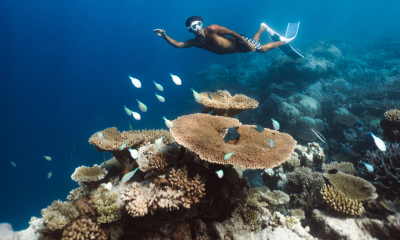Featured
‘Good Fortune has its roots in Disaster’ – Lao Tzu

By Sonu Shivdasani
This crisis, like most crises that we have been through, whilst more severe, will eventually end. Can we learn from this crisis to collaborate as a world and solve global warming? This is the big looming crisis that will unfortunately not end, and which will just get worse and worse.
I have been fortunate enough to have experienced many crises during my lifetime. My choice of the word ‘fortunate’ is deliberate. The Chinese word for crisis is two characters: ‘danger’ and ‘opportunity’. According to Lao Tzu, the Chinese writer and philosopher, ‘Good fortune has its roots in disaster’. And, over the years, I have come to understand these words and have realised that these crises are opportunities to learn, grow and develop. Certainly, we have no control over the hand that we are dealt, but we have total control on how we play it.
I have realised that if we consider a crisis in a positive way, we can always find an opportunity to learn and develop and make our lives more enriching as a result.

Let me share with you, a recent personal experience. In October 2018, I was diagnosed with stage 4 Lymphoma. The doctor asked me whether I understood the gravity of the situation. I maintained a brave face and just focused on documenting what he said and thinking of further questions that I would need answers to. However, once I had left the clinic, and was comfortably seated in the taxi home, I could not hold it anymore and broke into tears.
The first three weeks after the diagnosis was a difficult time. There was a lot of uncertainty. I felt that the ground had been removed from below me. However, this ‘Cancer Crisis’ gave me the opportunity to pause on everything else. I emerged from this traumatic experience three weeks with a clear action plan, and was considerably wiser about health and wellness.
When my doctor declared that I was in remission, I realised that I had gone through a six-stage grief cycle. The psychologist George Kohlrieser depicts this so well in his book Hostage at the Table: 1. Start an attachment; 2. Create a bond; 3. The bond/attachment ends for reasons; 4. One is pained by the loss/grief; 5. One forgives the situation; 6. One starts again.
The memory of when I first learnt of my predicament is still vivid. When I reflect on that day, I wonder what I was crying about. Was it the fear of death, or was it another loss?
Now, 18 months later, I realise that I was crying about the loss of the status quo. My usual reality of how I would live, eat and generally exist, was undermined by this illness, and would never return. During those three weeks, I grieved the loss of my usual daily reality. I realised how my lifestyle and the way I lived needed to change.
I eventually accepted my new reality, and forgave this loss. I created a new bond with this new reality and this new way of living. I gave up past guilty pleasures such as a love of red meat, ice cream and sweets in general. I extended the time in the gym from 30 minutes to an hour three times a week. I was stricter about creating breaks in my life. I reduced my traveling and also started to practice intermittent fasting. I started to enjoy my new lifestyle and diet and became attached to it. In a way, I created a new bond with my new reality and thus overcame this grief.
To some extent, many of us in the midst of the current coronavirus crisis are adjusting to a new reality and going through a similar grief cycle. There is a hollow emptiness, an uncomfortable feeling. We miss our daily routine that we can no longer enjoy because of this lockdown. In a way, we are grieving the loss of the way we used to live in the past.
Climate Crisis: The crisis that will never end but only get worse
While the current global health emergency will end, unfortunately, this hopeful scenario will not be the case with global warming. It is an ongoing situation which will affect each and every one of us. And it highlights our interconnectedness.

Climate experts believe that we are near a tipping point of no return. Some believe we have already passed it. We already have 400 parts per million of CO2 in the atmosphere. Even if we reduced our carbon emissions considerably and followed the targets established in Paris in 2016, we will still hit 500 parts per million.
Even if we were to slam on the brakes and turn around, we would not be able to because nature itself would continue the global warming process as a result of feedback loops, such as methane escaping from below the Arctic and the Antarctic, less reflection from glaciers that have disappeared, warmer seas emitting CO2 rather than absorbing them and so on.
The warming planet has already killed more people today than the current global pandemic that has brought us under siege: In 2003, the European heatwave killed as many as 2,000 people a day and 35,000 Europeans died. In 2010, 55,000 people died during a Russian heatwave in which 700 people in Moscow died every day because of the heat. In 2016, during the heatwave that besieged the Middle East, temperatures in Iraq broke 100oF (37.7oC) in May, 110oF (43.3oC) in June, and 120oF (48.8oC) in July. Temperatures seldom dropped below 100oF, and only at night. We survive in a very fragile ecosystem that we are undermining. Our actions to date have already caused more death, misery and disaster than Covid-19 ever will.
This pandemic will end but the important question is whether the bond we have with the way we live and our daily reality has been sufficiently broken, and whether we can attach ourselves to a new reality and a new way of doing things; or if we will just go back to our old ways.
Editor’s Note: This op-ed was originally published on Linkedin by Sonu Shivdasani. Sonu is the founder and CEO of Soneva, which owns luxury resorts Soneva Fushi and Soneva Jani in the Maldives, and Soneva Kiri in Thailand.
Cooking
Patina Maldives hosts Chef Shannon Bennett for exclusive April residency

From 1 to 5 April 2026, Patina Maldives, Fari Islands will host Shannon Bennett, one of Australia’s most recognised culinary figures and the creative force behind Belongil. The residency brings together a chef known for shaping dining as an emotional and reflective experience with a destination defined by perspective, creativity and purpose.
Bennett’s career extends beyond traditional notions of cooking. Through projects such as Vue de Monde and Belongil, he has explored dining as a medium for memory, connection and emotion, placing emphasis on experience rather than consumption. His approach centres on creating moments that remain with guests long after the meal has ended.
At Patina Maldives, the residency represents a convergence of shared values. Over five nights, guests are invited to take part in a limited series of dining experiences shaped by intention, curiosity and a sense of place. Rather than recreating Belongil in another setting, the programme evolves its philosophy, drawing inspiration from the natural rhythm and clarity of the Maldivian environment.
Commenting on the collaboration, Bennett said Belongil was conceived as more than a place to eat, but as a space for ideas, connection and lasting moments. He noted that Patina Maldives reflects a similar sense of purpose, adding that bringing his work into the island setting offered an opportunity to create experiences that feel grounded, honest and meaningful.
Patina Maldives continues to develop its identity by providing a platform for global creative voices to shape new conversations and perspectives. The residency with Bennett aligns with this approach, positioning cuisine as one element within a broader cultural and experiential narrative.
Tom Bray, Director of Lifestyle at Patina Maldives, said the resort exists to bring people closer to ideas, creativity and self-discovery. He added that welcoming Bennett reflects this philosophy, describing the residency as an experience designed to shift perspective rather than focus solely on gastronomy.
The residency is presented as an experience defined by intention rather than spectacle. Taking place over five nights on a single island, it brings together Patina Maldives and one of the culinary world’s most reflective minds for a programme shaped by presence, purpose and a sense of moment that cannot be replicated in the same way again.
Featured
You & Me Maldives unveils curated Premium All Inclusive programme
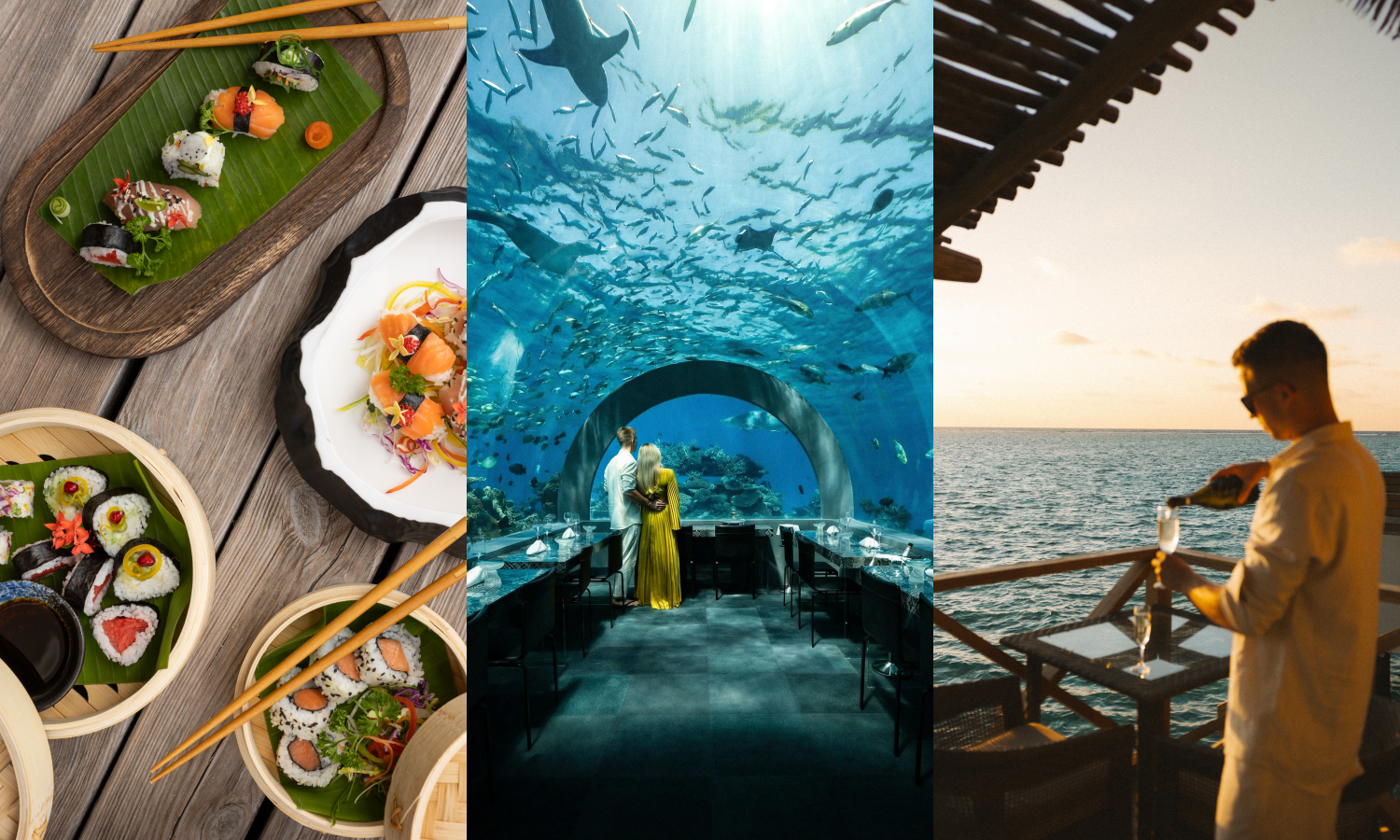
You & Me Maldives, the adults-only luxury retreat under The Cocoon Collection, has announced the launch of its new Premium All Inclusive experience, aimed at enhancing island stays through a more seamless and comprehensive offering in the Indian Ocean.
The Premium All Inclusive experience is designed to begin from the point of arrival. Guests receive complimentary access to The Cocoon Collection Lounge at the seaplane terminal at Velana International Airport, where services are provided to ensure a smooth transition before the journey to the resort.
On arrival at the island, guests are welcomed in their villas with a chilled bottle of sparkling wine and a selection of canapés. The Premium All Inclusive plan includes unlimited premium beverages by the glass, featuring a curated range of wines, signature cocktails, top-shelf spirits, international beers and non-alcoholic options. The in-villa minibar is replenished daily with soft drinks, international beers, red and white wines, as well as assorted snacks. For stays of five nights or more, guests also receive two bottles of premium liquor from a selected list, provided once during the stay.
The experience further includes a range of activities. Guests staying a minimum of three nights are offered one sunset cruise and one snorkelling excursion per stay, while those staying seven nights or more are entitled to a catamaran cruise. Unlimited use of snorkelling equipment and non-motorised water sports, including canoeing, kayaking and paddle boarding, is also included, subject to weather conditions.
Dining forms a central part of the Premium All Inclusive concept. Guests can enjoy three themed dining evenings, including a seafood barbecue under the stars featuring prawns, lobster and oysters. For stays of five nights or more, guests may also take part in a complimentary group cooking class, with a choice between ethnic or Italian cuisine, led by the resort’s culinary team.
Wellness offerings are also incorporated into the programme, with guests able to participate in up to three complimentary sunrise yoga sessions per stay, subject to availability.
The introduction of the Premium All Inclusive experience reflects the resort’s focus on personalised service and carefully curated stays. The offering is positioned to appeal to couples seeking relaxation, romance or activity-led experiences within an adults-only island setting.
Featured
Eid celebrations at SO/ Maldives blend Arabic tradition and Maldivian culture

SO/ Maldives is inviting global travellers this season to reimagine Eid not merely as a holiday, but as an immersive island escape. Located just 15 minutes by speedboat from Malé, the fashion-forward private island retreat sets the stage for a celebration where cultural heritage, contemporary luxury and tropical glamour come together.
At the centre of the festivities is an authentic culinary experience at Hadaba, the resort’s award-winning Arabic restaurant. Guests are offered Levantine flavours, artisanal mezze and traditional recipes presented with a modern approach, creating a setting for shared dining and celebration. As part of the resort’s dine-around concept, Hadaba can be included in a wider culinary journey across the island, allowing guests to experience Arabic cuisine alongside the resort’s other dining venues.
As evening falls, celebrations move to Lazuli Beach Club, where shisha rituals and Arabic-inspired refreshments are served in a beachfront setting. Traditional performances are complemented by Maldivian Boduberu drumming and fire dance displays, creating a cultural programme designed to appeal to international travellers seeking meaningful experiences.
Across the island, Eid is marked through a series of curated activities aimed at encouraging connection and creativity. Cultural workshops, including palm-leaf artistry and henna sessions, offer opportunities to explore heritage, while younger guests are engaged through themed crafts, interactive games and sweet treat decorating. The overall atmosphere remains celebratory while maintaining a relaxed pace that reflects the resort’s character.
Beyond the festive programme, the resort positions the long weekend as a fully immersive island retreat. Guests stay in beach and overwater villas featuring private pools and ocean views, with interiors inspired by high fashion. Time is spent between spa treatments, lagoon activities, beach club experiences and sunset dining, balancing celebration with seclusion.
To mark the season, the resort has introduced two limited-time stay offers. The One Night on Us offer provides savings of 33 per cent on stays of three nights or more, along with daily breakfast, complimentary transfers and spa privileges. The Soo Summer package offers preferential rates combined with spa experiences, curated dining inclusions and additional benefits for water villa stays.
Welcoming travellers from Europe, Asia, the Middle East and beyond, the resort presents Eid as a global celebration where Arabic traditions, Maldivian culture and contemporary design are brought together. This season, guests are invited to exchange routine for island surroundings and experience Eid through a redefined island perspective.
-
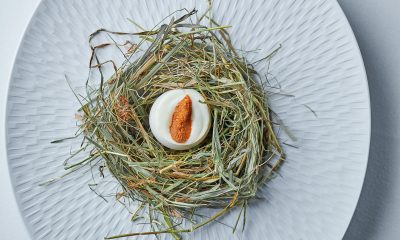
 Cooking1 week ago
Cooking1 week agoA spring of flavours: Nowruz dining series at JW Marriott Maldives Resort & Spa
-
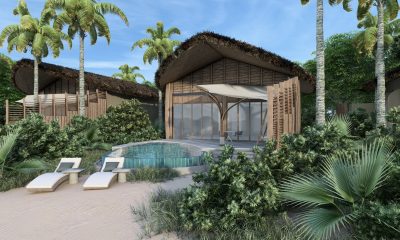
 News1 week ago
News1 week agoPulse Hotels & Resorts unveils Aura Maldives, a mindful luxury sanctuary
-
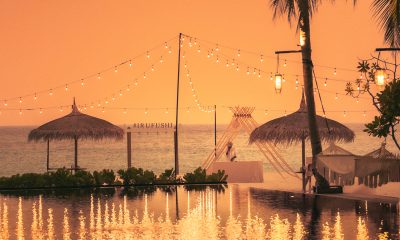
 News1 week ago
News1 week agoSun Siyam Iru Fushi sets new nenchmark with 24 Hour Premium All Inclusive Dine Around
-
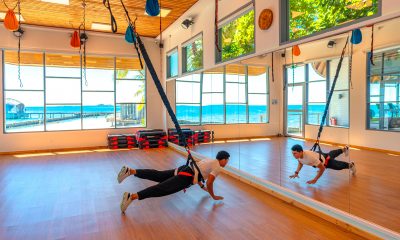
 Fitness1 week ago
Fitness1 week agoOUTRIGGER Maldives Maafushivaru launches expanded wellness programming for 2026
-
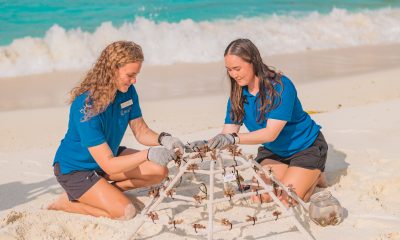
 Action1 week ago
Action1 week agoSheraton Maldives Full Moon celebrates sixth anniversary of Reefscapers collaboration
-
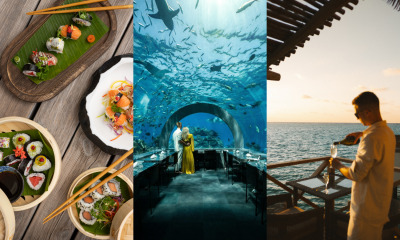
 Featured1 week ago
Featured1 week agoYou & Me Maldives unveils curated Premium All Inclusive programme
-
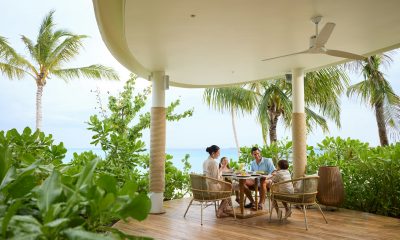
 Awards6 days ago
Awards6 days agoCentara Mirage Lagoon Maldives named Luxury Family Friendly Resort of the Year
-
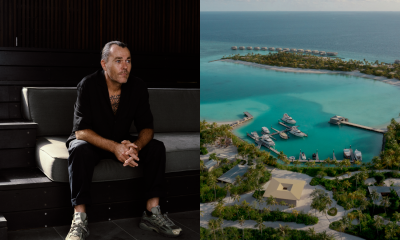
 Cooking1 week ago
Cooking1 week agoPatina Maldives hosts Chef Shannon Bennett for exclusive April residency



